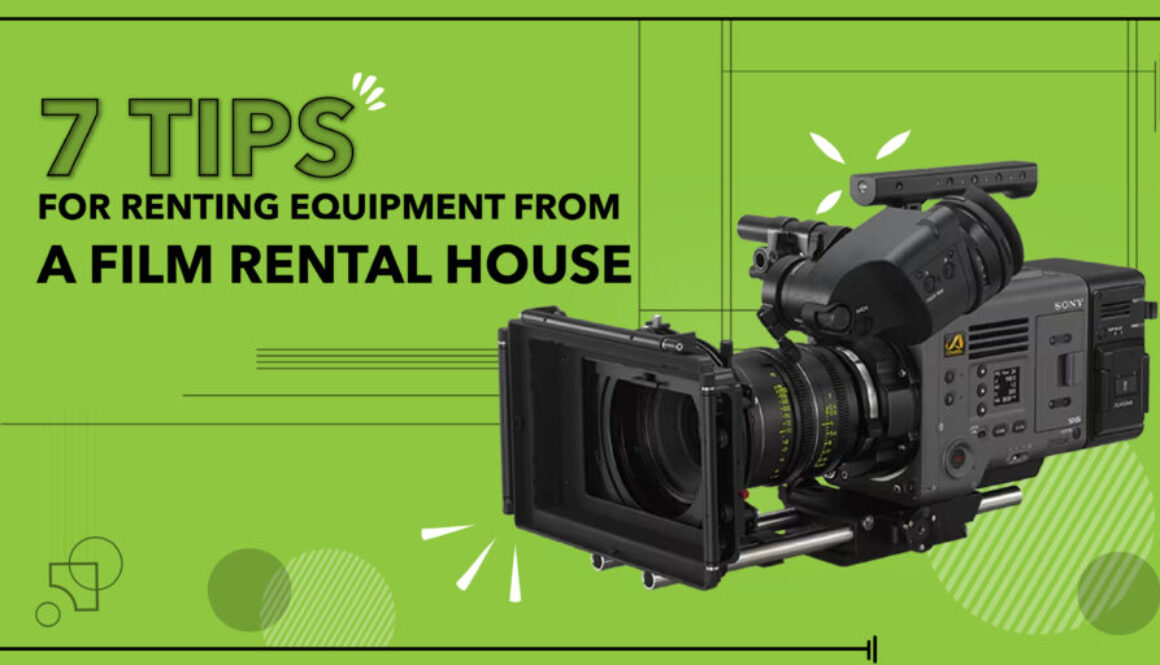7 Tips for Renting Equipment from a Film Rental House
Renting video equipment from a film rental house is the way to go if you’re considering video production. The reasons are simple – it is much more cost-effective, and you don’t have to worry about maintenance or logistics.
With years of experience renting video equipment in Dallas, Electric Light & Power Company has the inventory and expertise in this niche. Here are a few tips that you can use to ensure that you can maximize renting video equipment.
1. Get the Planning Right
The first thing you should discuss with your crew is the plan for rentals and equipment. Video production needs a lot of equipment, and if you don’t plan it correctly, you could get in trouble. Renting too many pieces of video equipment happens just as easily as ordering too few.
To avoid this from happening, consult with your crew and build a list of things that they need to get the job done. Ensure that you cover overlaps and take care not to order equipment you won’t use.
2. Estimating Your Budget
Budgeting is one of the most challenging parts of the entire video production process. The reason why finances are tough to estimate is because there are so many moving parts in production. The sheer number of places where things can go wrong is pretty high, so you need to get this correct at the beginning of the process.
Rental costs can take a huge chunk off your total expenses. Don’t forget to include taxes and other additional expenses when you finalize your budget. Consider a deal with your equipment rental agency for a longer duration if that is cheaper.
3. Choosing Your Gear
Something that needs a lot of skill and patience during video production is choosing the right equipment. Ensure you’ve highlighted all the important pieces of equipment you will need. There are two main things you need to consider when choosing your gear – cost and compatibility.
Anything that you rent needs to be compatible with your existing equipment. Discuss with your rental agency to find the right equipment. When it comes to cost, there are times when you can even make do with older equipment. Premium older equipment can sometimes offer the same performance as newer ones at a much lower cost.
4. Inspect the Equipment
Take enough time to inspect and verify all the equipment that you’ve rented from the film house. Building an itemized list can help you take stock of what they have provided. This is where you need the help of your crew. Document any signs of damage or wear and tear on the equipment.
It is also important to verify that the specific accessories you’ve requested are compatible with the equipment. Ensure that all the camera lenses are clean and there aren’t any scratches on them. Finally, when the initial inspection is done, put them together and ensure everything works well.
5. Discuss Insurance Coverage
When dealing with sensitive equipment worth thousands of dollars, having proper insurance in place makes sense in case things go awry. Every rental agency in Dallas provides some sort of insurance that has adequate coverage. But as someone renting equipment, it is in your best interest to read through all of the terms and conditions specified in the insurance.
While the default insurance is okay, it might not offer everything you want. Explore options to improve your insurance coverage with your rental agency. One area that you might need to specify is damage and theft insurance, as these are the most common claims in the niche.
6. Understand the Terms of Rental
A rental agreement is a document that specifies the equipment hired and other details about the transaction between the rental agency and you. Completely familiarize yourself with the rental agreement; don’t be afraid to ask questions. There are chances some rental agencies might engage in unscrupulous tactics, so take your time to read through the agreement.
The rental agreement will also have specific terms and conditions, which you might be unfamiliar with if this is your first-time renting equipment. Last but not least, be aware of the penalties for delays in returning equipment. Not everything goes like clockwork; things can get delayed. When this happens, you want to be sure that the penalties aren’t prohibitively expensive.
7. Discuss Transportation and Logistics
Film equipment is big and bulky – you need to consider transportation for your production. Discuss with your rental agency about their terms for equipment logistics. Rental agencies can sometimes transport the equipment to where your production is, or you might need to arrange your own transportation.
Getting this sorted out initially prevents confusion and lets you get on with the rest of your production. At your end, ensure that you have adequate space to store all the equipment safely. You also want to arrange transportation to shooting locations depending on your requirements.
